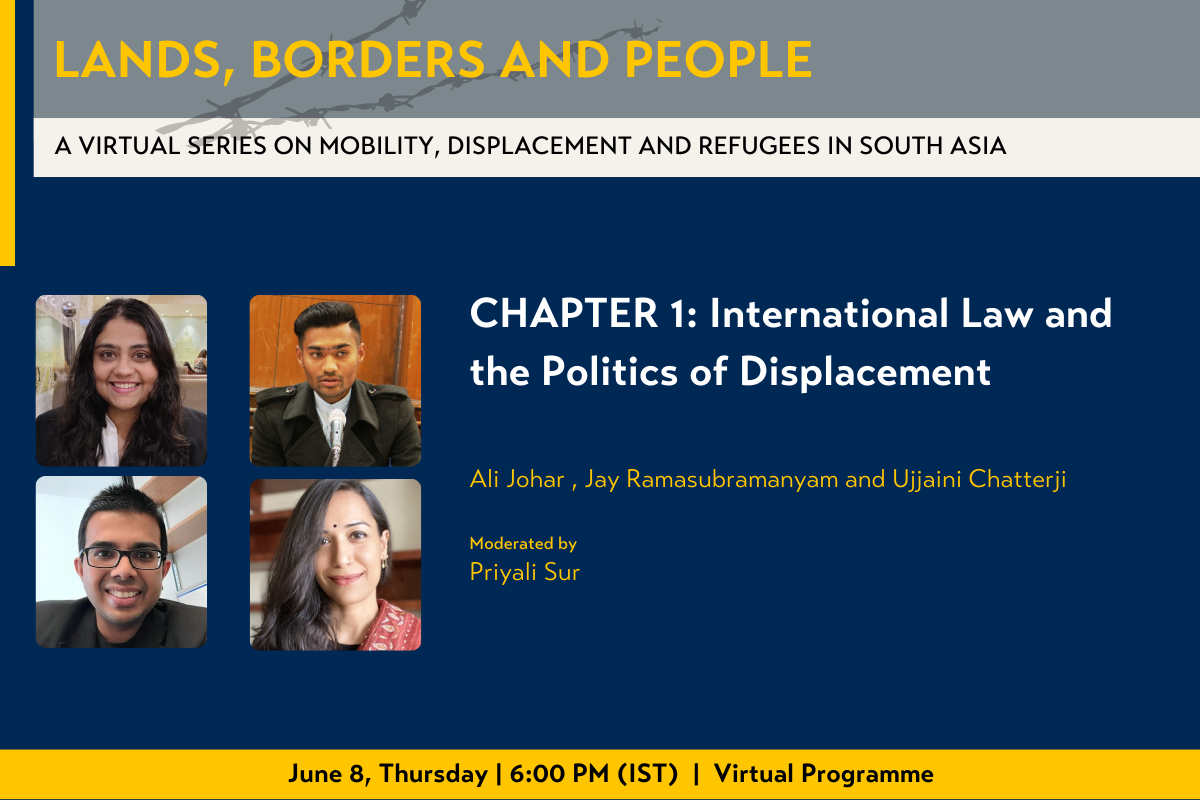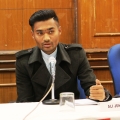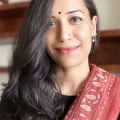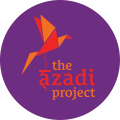International Law and the Politics of Displacement
VIEW EVENT DETAILSThe first in our four-part series on mobility, displacement and refugees in South Asia

The United Nations High Commissioner for Refugees (UNHCR) has said that by the end of 2020, at least 82.4 million people in the world have been displaced because of persecution, violence, human rights abuse, and disruptions to public order. Of these, 26.4 million are classified as refugees. Over the years, there have been comprehensive efforts by the global community, to define what makes someone a refugee; how host countries can ensure refugees are protected; and what qualify as refugee rights. The first of these was the 1951 Convention, in the aftermath of the World Wars. This identified refugees' right to live and work in their host country, and to be protected against returning to potentially dangerous home territory. But this was largely limited to those in Europe. The 1967 Protocol aimed to widen its geographic scope to the non-European world, but many questions still remain as far as South Asian countries are concerned.
Barring Afghanistan, no South Asian country is a signatory to the Protocol. This opens up questions on what refugees in this area are legally entitled to. In India, for instance, the 1946 Foreigners Act, rather than any act mentioning or pertaining to refugees, is the main legal framework used for the many refugees in the country, numbering over 2.5 million. Join our panel as we explore some questions relating to refugees' rights and status -- should South Asia sign the 1967 Protocol, or are there other global benchmarks to follow? Would one law across South Asia be most useful or should there be country-wise specifications taking into account the context? At the national and subcontinental level, what have been some examples of legal protection and what are some roadblocks?
Join our panelists, Ali Johar, founding member of Rohingya Human Rights Initiative, Professor Jay Ramasubramanyam, Assistant Professor, York University, and Ujjaini Chatterji, Lawyer as they explore these questions on June 8, 2023, from 6 pm to 7:30 pm over Zoom.
***
This panel is the first session of the four-part series Lands, Borders and People, scheduled as interactive learning modules in June and July 2023. The series aims to delve into a significant contemporary issue that impacts nations and communities globally: migration, displacement, and refugees. In each session, a panel of experts will examine various aspects of this topic, focusing on the legal, social, economic, and cultural dynamics specific to South Asia. The audience will comprise stakeholders actively involved in this sector, including human rights activists, lawyers, journalists, NGOs, and others Priyali Sur, Founder and Director of The Azadi Project will serve as the chair and moderator for all four sessions.
The four sessions in this series are:
June 8: International Law and the Politics of Displacement
June 15: Climate
July 5: The host economy
July 19: Media and language
To register your interest in this or the remaining sessions, please email us at [email protected]. The chapters will be hosted as Zoom meeting rooms, so they require pre-registration and have limited seating. Once you write to us, we will send you a Google form with more details, and links to the session closer to the date.
We highly encourage participants to keep their cameras on for an immersive experience. Whether you have an academic, professional, or personal interest in this topic or the region, we hope you'll join us for this series.
CHAPTER 1: SPEAKERS

Ujjaini Chatterji is a lawyer based in New Delhi. She graduated with an LLM in Human Rights from the University of Nottingham. Ujjaini has worked on business and human rights law in Syria with the Syrian Legal Development Program in 2018 and later focused on constitutional law, labor law, and refugee rights in Bangladesh. She engages in human rights litigation, working as a Junior to Sr Advocate with Ms Indira Jaising and as a member of the Lawyers Collective. Ujjaini has been involved in protecting migrant workers and Rohingya refugees in Delhi during the Covid-19 pandemic. She writes extensively on migrant workers' rights, business and human rights, fair wages, housing rights, and the Rohingya refugee crisis. Ujjaini represents women, children, and clients from working classes in legal matters related to sexual and gender-based violence, unlawful detention, and labor laws. In 2022, she conducted a fact-finding mission on the detention of Rohingya refugees in Delhi and published a ground report. Subsequently, she filed a case in the High Court of Delhi in 2023 to address the illegal detention of Rohingyas. She is the founder of The Lingering Shadows Initiative, which visits migrant workers and refugee communities, records their stories, and provides legal consultations, representation, and training in Delhi NCR.

Ali Johar is a prominent Rohingya refugee human rights defender and statelessness activist. He is a co-director of Rohingya Human Rights Initiative (www.rohringya.org), a community-based support and campaign organisation. Currently, Ali is a fellow at Refugees International. He is also a recipient of the Social Change Initiative International Fellowship award for the year 2021-2022 and has worked closely with the Institute on Statelessness and Inclusion. He is a youth and education coordinator for the Free Rohingya Coalition, a network of international activists and scholars working to end Myanmar’s genocide. He is interested in education, politics, forced migration, and statelessness. Ali has published articles, blogs, human rights reports and book chapters on the issues faced by refugees and stateless people. Learn more here.

Jay Ramasubramanyam is an Assistant Professor (Teaching) in the Law & Society Program at York University, Toronto. Professor Ramasubramanyam obtained his B.A. in Criminology from Victoria University of Wellington, New Zealand (2009). He received a Postgraduate Diploma and LL.M. in International Human Rights from Birmingham City University, United Kingdom (2011) and his Ph.D. from the Department of Law and Legal Studies and the Institute of Political Economy, at Carleton University (2021). He is a global south migration researcher. His research expertise includes forced migration, international refugee law, statelessness, third world approaches to international law, human rights, race and racialization, postcolonial theory, and South Asian studies. His research explores the asymmetries of power, knowledge production and the ostensible legitimacy of norms in the field of refugee studies and refugee law.
SERIES MODERATOR AND CHAIR

Priyali Sur is the Founder and the Executive Director of The Azadi Project. She has built and implemented programs across Europe, Africa and South Asia, helping refugees and migrants from Afghanistan, India, Iran, Iraq, Myanmar, Niger, Syria, Ukraine and Yemen. She was a former news anchor for CNN-IBN in India, and has consulted as a Social Development expert for the World Bank in Washington, D.C. Her work has been published in CNN, NPR, PBS, and The Guardian, among other international media outlets.
SERIES COLLABORATOR

Event Details
To register your interest in one or more of these sessions, please email us at [email protected].